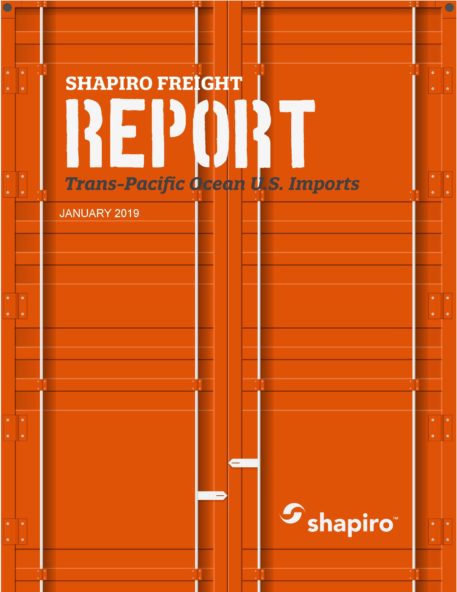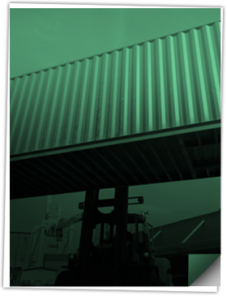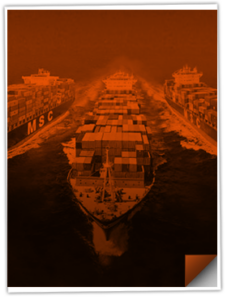Featured Headlines:
Mail Shipments from China Require Advanced Electronic Data
CBP Issues New ‘Modernized Drawback’ Regulations
New Year, New TSCA Requirement!
Tariff Exemptions – Round One!
Amazon Looking to Stop Selling ‘CRaP’ on E-Commerce Market
ILA (Finally) Reaches Agreement with Philadelphia Port
Empty Container Volumes at LA/Long Beach Rise as U.S. Exports Decline
Maersk Commits to Net Zero Carbon Emissions by 2050
CSX Pivots on Baltimore Howard Tunnel Rail Project, Commits to $91 Million in Private Funding
Mail Shipments from China Require Advanced Electronic Data
Effective January 1, 2019, Advance Electronic Data (AED) will be required for 100% of all postal shipments into the United States originating from China. This notice also applies to Special Administrative Regions of the People’s Republic of China (Hong Kong and Macau), as well as to Foreign Postal Operators that ship goods from China to the United States.
U.S. Customs and Border Protection (CBP) would like carriers to communicate with postal officials in the People’s Republic of China, Hong Kong, and Macau to confirm that all containers with postal shipments have provided AED prior to loading them onto their conveyance. If the postal operator identifies to the carrier that a container does not meet the AED requirements, then the carrier has been instructed to not accept that container.
Currently, there are no planned CBP enforcement actions against the trade due to the new requirement. However, CBP has stated that shipments not complying with the new AED protocol could be returned to origin and that enforcement could commence any time after January 1, 2019. For more information, please reference CSMS #18-00758, which was issued by CBP in December 2018.
Are you unsure if your shipment is affected by the new AED requirement? Please contact us at [email protected] with any questions and we would be happy to assist!
CBP Issues New ‘Modernized Drawback’ Regulations
On December 18, 2018, as directed by the Trade Facilitation and Trade Enforcement Act of 2015 (TFTEA), U.S. Customs and Border Protection (CBP) issued the new ‘Modernized Drawback’ regulations in the Federal Register.
These regulations establish new processes for drawback pursuant to TFTEA that liberalize the merchandise substitution standard, simplify recordkeeping requirements, extend and standardize timelines for filing drawback claims, and require the electronic filing of drawback claims.
On December 17, 2018, CBP also issued CSMS message 18-000737 advising that the regulations necessary for CBP to begin processing payments for Accelerated Payment (AP) on TFTEA drawback claims are now effective.
For further information on the new drawback regulations please contact:
Randy Mitchell – CBP Office of Trade, Trade Policy and Programs
202–863–6532
CBP has also scheduled Monthly Drawback and Deployment Support Calls:
Monthly Drawback Calls
Call-In Number: 1-877-873-8017
Code: 6215791
The Trade Policy and Program Office will host a Monthly Drawback Trade support call between 1:00 PM ET and 2:00 PM ET on the last Wednesday of each month to answer policy and technical questions.
Scheduled Days: January 30, 2019 & February 27, 2019.
Deployment Support Calls
Call-In Number: 1-877-336-1828
Code: 6124214
The Trade Policy and Program Office will host a series of Drawback Support calls for the trade between 2:00 PM ET and 3:00 PM ET to assist filers with any last-minute questions or concerns they may have.
Scheduled Days: February 19 – 22, 2019 & February 25 – March 1, 2019.
Please reach out to [email protected] should you have any questions or require further clarification.
New Year, New TSCA Requirement!
The EPA published the Formaldehyde Emission Standards for Composite Wood Products final rule on December 12, 2016. Now it’s time for importers, distributors and retailers to step up!
Beginning on March 22, 2019, importers, distributors and retailers of composite wood products, such as hardwood, plywood, medium-density fiberboard (MDF) and particleboard, must include certification that the articles conform to Title VI of the Toxic Substances Control Act (TSCA) by including the following statement, which must be signed by the importer, in all shipments:
“I certify that all chemical substances in this shipment comply with all applicable rules or orders under TSCA and that I am not offering a chemical substance for entry in violation of TSCA or any applicable rule or order under TSCA.”
This includes household and other finished goods made with these products.
According to the EPA’s Compliance Guide for Importers, Distributors and Retailers, importers need to take reasonable precautions, which include but are not limited to:
- Notifying suppliers that any goods ordered are compliant with this rule.
- Identifying the supplier and the purchase date of all items that fall under this rule.
- Ensuring that written statements confirming TSCA compliance on bills of lading, commercial invoices or comparable documents are on file for a minimum of 3 years. Please note that CBP requires file retention for 5 years.
- Complying with EPA requests for any documentation or other information within 30 days.
Webinars are available on EPA’s Formaldehyde website.
For any questions regarding this message, call 202-554-1404, or contact [email protected].
Do you need help deciphering the TSCA and its nuances? If so, please contact us at [email protected] and we can assist you with your questions.
Tariff Exemptions – Round One!
As the new year settles in, so do the effects of Trump’s trade war with China. Although the holidays have passed, the prolonged government shutdown has left many agencies, such as CBP and USTR, short staffed. Despite temporary employee shortages, the government has begun to release the initial exemption data in regard to companies and products that applied for reprieves from the Chinese Section 301 List One tariffs.
To date, approximately 101 companies received exemptions on products from over a dozen categories. The biggest product exemptions were granted for valve bodies, such as air brakes, and ice making equipment, which generated $755.8 million and $445 million respectively in 2018. Interestingly, reprieves were given to unground ball bearings, despite only generating $283 million (25.7%) in U.S. imports from China last year.
Thus far, the U.S. government has denied 1,258 formal product requests. With a reported 78.2% of requests being denied, importers patiently and hopefully await approval (or denial) on 10,198 additional exemption requests.
If you have any questions regarding exemptions, please don’t hesitate to reach out to us at [email protected].
Amazon Looking to Stop Selling ‘CRaP’ on E-Commerce Market
Although many consumers look to Amazon as a one-stop shop for everyday items, it appears that recent corporate strategy aims to make this notion a thing of the past. Despite third party goods being responsible for more than half of all sales, the online retail giant looks to increase profit margins via shipment policy changes in this area.
The term ‘Can’t Realize a Profit’, or CRaP for short, has been internally coined for low-profit goods, such as bottled water, soda and snack foods sold on the site. Amazon has decided to begin eliminating altogether, or repackaging, CRaP shipments made directly from third party companies to consumer, instead of via Amazon fulfillment centers. The company attributes the decision to increasing costs on bulky or heavier shipments that generate less than $15 in profit.
It’s no secret to vendors that Amazon has been progressively changing storage and other facility policies for some. Many pundits feel that cargo that isn’t profitable for Amazon is getting pushed or charged higher rates in warehouses. As Amazon continues to retain dominance in the e-commerce market, its new CRaP policy leaves its third-party merchants little room to fight back.
Will your shipment be affected by this new policy? If so, reach out to us at [email protected] and we can explore alternative fulfillment strategies together.
ILA (Finally) Reaches Agreement with Philadelphia Port
The International Longshoremen’s Association (ILA) voted to pass a six-year contract extension with the port of Philadelphia just days before the new year. The December 21 agreement comes after months of back and forth between the Philadelphia labor union and port employers over staffing levels for lashers and the number of longshoremen involved with monitoring reefer shipments.
On September 6, 2018, both West and East Coast ILA members overwhelmingly approved the ILA-United States Maritime Alliance (USMX), a separate master contract tasked with coastwide jurisdictional issues, leaving port specific issues on the table for the 58 East and West Coast local groups to discuss. The Philadelphia port was one of the few unsettled localized contracts left. Union negotiations dragged at the Baltimore and Charleston ports as well.
Tensions peaked in May following turbulent regional disagreements from the continually growing vessel and volume sizes along the Delaware River. Union representatives attributed the mounting stress on port and union employees with the uptick in growth, which served as a primary motivator in the extended talks – long passed the prior contract’s expiration date.
ILA Master v. Local Contract Jurisdictional Issues
| Master Contract | · Wages · Medical benefits · Carrier-paid royalties · Coastwide issues |
| Local Contract | · Work rules · Pension · Port-specific issues |
Negotiations went south earlier this month as ILA members nearly went on strike due to uncertainties surrounding the contractual pension language. Ultimately, both sides compromised on staffing levels by agreeing to additional staff assignments for every 150 reefer boxes beyond the first 150 boxes, and increasing the number of lashers as cargo volume increased.
The contract also extends to cover nearby ports in South Jersey and Wilmington.
Employers and union officials hope that this resolution brings six years of peace and productivity at the port.
Empty Container Volumes at LA/Long Beach Rise as U.S. Exports Decline
U.S. imports have recently spiked as demand remained at record level highs through the annual peak season. Particularly, West Coast ports saw an above average spike in their late and post-holiday peak volumes as importers rushed to beat the next round of Section 301 tariff escalations, which, at the time, were set to begin on the first of the year.
The positivity surrounding import surges has cast a shadow over recent concerns of a growing trade imbalance signaled by upward trends in empty container shipments. In 2017, empty container exports rose 11.4 percent at the Port of Long Beach, and more than doubled at the Port of Oakland. On average, U.S.-China trade imbalances are responsible for one third of empty container shipments, costing a reported $20 billion annually.
Analysts struggle to set clear Q1 2019 projections as necessary forecasting collides with Trump’s recent announcement of the 90-day trade war ceasefire. All eyes are fixed on the progress of U.S.-Chinese trade war negotiations as Q2 demand questions begin to emerge as well.
While this news could be seen as a harbinger of tougher times for U.S. exports to China, it also represents significant opportunity for the exporters who can move agilely to take advantage of this imbalance and benefit from the lower export rates associated with this glut of empty containers.
If you are looking for a forwarding partner to help you navigate this changing export marketplace, contact our marketing experts at [email protected] to learn more about how Shapiro can assist you.
Maersk Commits to Net Zero Carbon Emissions by 2050
While steamship lines are scrambling to meet the International Maritime Organization’s (IMO) 2020 global marine sulfur cap deadline, Maersk has already set its sights on a far larger target. The steamship line has committed itself to achieving a carbon neutral status by 2050 – a significant step in an industry responsible for 3% of greenhouse gas emissions, according to the International Council on Clean Transportation.
While Maersk’s move could be a major stepping stone in the quest to reduce greenhouse gas emissions, it’s important to consider the path which Maersk plans to take to achieve its target. Maersk’s goal assumes that carbon neutral vessels are commercially available by 2030, supported by accelerated technological innovation in the industry, as well as widespread adoption of said technologies.
Industry experts have stated that widespread adoption of carbon neutral vessels will require carriers to pursue new fuels for vessels in preparations for the 2020 sulfur cap, instead of opting for emissions scrubbers for vessels, which could make the transition to alternative fuels more difficult. Nevertheless, with shrinking margins and the higher cost of alternative fuels, this will be a difficult justification for many vessel owners.
For shippers, Maersk’s announcement serves as a reminder of the important role fuel plays in ocean freight pricing. While bunker surcharges have remained relatively stable for the past few years, the IMO’s 2020 deadline will begin to disrupt the market in 2019 and shippers should be prepared for a changing cost structure from the carriers.
Please don’t hesitate to reach out to [email protected] with any questions surrounding the sulfur requirements that will go into effect in 2020.
Airports and Airlines Update
American Airlines announced several changes to cargo routes based on recent passenger data. They are eliminating low-passenger volume flights, while adding new services based on the seasonal loads that proved well in the past.
Eliminated:
- PHL-FRA/MUC
- JFK-DUB/EDI
- ORD-MAN/PVG
Added:
- PHL to PRG/BUD/TXL/BLQ/DBV/EDI
- PHX-LHR
- DFW-DUB/MUC
- CLT-MUC
- ORD-ATH
IAG Cargo, comprised of British Airways, Iberia, Aer Lingus, Veuling and Level, announced new routes between LHR-PIT/ISB. Cargolux started HKG-MEX with two trips per week and one stop in GDL a week.
Cost and environmental impact concerns have recently halted the development of a new international airport in Mexico City, and led to disappointment in the market’s outlook for improved infrastructure.
Qatar Airways Group’s recent acquisition of China Southern Airlines exchanges their existing membership with the SkyTeam Airline Alliance for the One World Alliance.
China granted the right to negotiate fifth freedom cargo services to its CGO and XIY Airports. The airports have seen marked increases in the exponential growth of e-commerce, so the new right to negotiate offers relief to the busier Beijing and Shanghai hubs with its inland location.
CSX Pivots on Baltimore Howard Tunnel Rail Project, Commits to $91 Million in Private Funding
In yet another development in Baltimore’s Howard Street Tunnel expansion project, CSX Transportation has pledged $91 million in private funding to support the initiative. The announcement nullifies now former CEO Hunter Harrison’s decision to abandon financial support. CSX attributes the reversal to recent project re-evaluations, which forecast higher profits and more competitiveness for the Port of Baltimore than originally expected.
Overall, the substantial scale of the project is due largely to the tunnel’s historical relevance. Built by the B&O Railroad in the 1890s, the tunnel served as the longest in the railroad’s network and earned its position on the National Register of Historic Places. In modern times however, the tunnel has long been considered a CSX choke point along the I-95 corridor.
The moribund project’s complete revival now rests on its ability to request and reobtain nearly $155 million in Federal funding that was originally declined by the State of Maryland following the previous withdrawal of CSX financing. With a private sector partner in place, the state of Maryland must now resume discussions with federal officials and reevaluate the timeline for project completion.
Employee of the Month
As previously featured in Shap Talk, Shapiro has been sharing with you the names of employees who have been recognized for their exceptional efforts and contributions to our Company. At Shapiro, we continually work to develop, challenge, and inspire all of our employees to grow individually and with the Company.
This month, we would like to recognize Yanet Merlo-Quintana, Pricing Analyst, for her outstanding performance and contributions.
We encourage you to provide us with employee feedback! Please email us at [email protected].
Shapiro Freight Report
This high-level, monthly review of the U.S. import freight market provides key insights into the tumultuous world of international shipping. From carrier alliances to labor strikes, Shapiro covers the pertinent information logistics managers need to know. Check back monthly to ensure you don’t miss key industry insights!
The Quadruple Bogey on Budgeted Costs for U.S. Importers
The majority of U.S. importers establish their annual budgets with start dates occurring at some point during Q1, with a relatively strong minority waiting until ocean contracts are in place in April. Despite what looked like a straight-forward course of “budget golf”, nearly all players in 2018 ended up scoring well over their expected handicaps. Here are the four most common hazards that sent budget scores up, up, and away…




